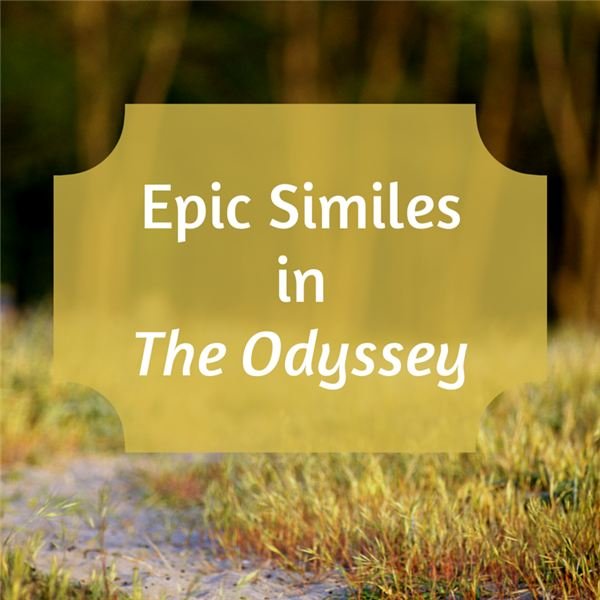Epic Similes in the Odyssey: Explanation and Analysis of Figurative Language
Figurative Language in The Odyssey
[caption id="" align=“aligncenter” width=“600”]
Figurative language in The Odyssey consists of metaphors, personification, and epic or Homeric similes. Epic similes are an elaborate comparison between two unlike objects using like or as. The Odyssey is an epic poem and epic similes in The Odyssey abound. Following are examples of epic similes in The Odyssey. Epic Simile: “I drove my weight on it from above and bored it home like a shipwright bores his beam with a shipwright’s drill that men below, whipping the strap back and forth, whirl and the drill keeps twisting, never stopping –So we seized our stake with it fiery tip and bored it round and round in the giant’s eye.” Commentary: Odysseus gives a descriptive account of how he defeats the Cyclops Polyphemus. Because he is speaking to the Phaecians, a sea-faring people, they would understand the comparison to a shipwright’s drill. Epic Simile: "…its crackling roots blazed and hissed - as a blacksmith plunges a glowing ax or adze in an ice-cold bath and the metal screeches steam and its temper hardens - that’s the iron’s strength - so the eye of Cyclops sizzled round that stake." Commentary: Odysseus compares the sizzling sound of the Cyclops’ eye to that of sticking fire-hot metal in cold water. Epic Simile: "Her mind in torment, wheeling like some lion at bay, dreading the gangs of hunters closing their cunning ring around him for the finish." Commentary: Penelope expresses her feeling of helplessness by comparing the suitors to hunters and herself to a trapped lion. The lion reference shows she still considers herself noble. Epic Simile: “Weak as the doe that beds down her fawns in a mighty lion’s den - her newborn sucklings - then trails off to the mountain spurs and grassy bends to graze her fill, but back the lion comes to his own lair and the master deals both fawns a ghastly, bloody death, just what Odysseus will deal that mob - ghastly death.” Commentary: Not a good time to be Penelope’s suitor. Odysseus is the lion. The fawns are the suitors. The suitors are about to learn an important lesson: make sure Odysseus is dead before you hit on his wife, drink his wine, and insult his son. Epic Simile: “The attackers struck like eagles, crook-clawed, hook-beaked, swooping down from a mountain ridge to harry smaller birds that skim across the flatland cringing under the clouds but the eagles plunge in fury, rip their lives out–hopeless, never a chance of flight or rescue–and people love the sport– so the attackers routed suitors headlong down the hall, wheeling into the slaughter, slashing left and right and grisly screams broke from skulls cracked open– the whole floor awash with blood.” Commentary: This epic simile describes the battle between Odysseus and the suitors. Odysseus and Telemachus are the eagles, a symbol of nobility and strength; although the eagles are outnumbered, they “rip their lives out.” Like the smaller birds have no hope of rescue, the suitors are doomed. The description captures Odysseus’ anger, the panic of the suitors, and the gore of killing. Epic Simile: “Think of a catch that fishermen haul in to a halfmoon bay in a fine meshed net from the white caps of the sea: how all are poured out on the sand, in throes for the salt sea, twitching their cold lives away in Helios’ fiery air: so lay the suitors heaped on one another.” Commentary: The pile of dead suitors are compared to dead fish piled in a boat, lying in the sun after a days haul. The simile conjures images of rot and decay, of stink and death.
Use these epic similes in The Odyssey to enrich your reading, improve your intelligence, and impress your friends. For page numbers on these quotes, try searching the online book: https://books.google.com/books?id=biBRxQmHPLIC&printsec=frontcover#v=onepage&q&f=false Lattimore, Richmond. The Odyssey of Homer. New York:Harper Collins. 1975.
This post is part of the series: The Odyssey
Go on the adventure of a lifetime with all your favorite Greek warriors.
